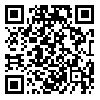Volume 4, Issue 1 (6-2017)
Human Information Interaction 2017, 4(1): 80-91 |
Back to browse issues page
Download citation:
BibTeX | RIS | EndNote | Medlars | ProCite | Reference Manager | RefWorks
Send citation to:



BibTeX | RIS | EndNote | Medlars | ProCite | Reference Manager | RefWorks
Send citation to:
Barahmand N, Nakhoda M, Fahiminia F, Nazari M. Use of Episodic Interview in Health Information Seeking Studies. Human Information Interaction 2017; 4 (1)
URL: http://hii.khu.ac.ir/article-1-2676-en.html
URL: http://hii.khu.ac.ir/article-1-2676-en.html
Tehran University
Abstract: (9979 Views)
Background and Aim: Due to recent attention to health promotion and self-care as one of the prerequisites of health services and intervention programs, health information seeking behavior research has gain increasing importance. Factors such as attention to user centered studies, context and self-care require using of methods and tools that help study people in their natural environment. However, review studies have shown the dominance of quantitative and positivist approaches in health information seeking behavior studies. This study aims at introducing episodic interview as a tool for gathering unique data from peoples’ natural lives and its application in health information seeking studies.
Method: This review article has been conducted by library method. It addresses health information seeking behavior concept and its affecting factors. It also introduces episodic interview and its underlying concepts including narration and narrative interviewing. Further, it investigates implications of applying episodic interview in health information behavior studies and eventually it discusses steps of conducting episodic interview with examples of narrations.
Findings: The strength point of episodic interview is its focus on narration of people about their lived experiences as research data which help researchers study and analyze people in a different way from conventional approaches. Implications of applying episodic interview are: 1.concentration of health information behavior studies on pattern of behavior, 2. health information seeking behavior being interwoven in everyday life, and 3. health information seeking behavior being intentional and purposeful.
Results: Episodic interview help researchers listen to the voices of different groups of people, especially whom their voice is not heard due to sickness and social and cultural conditions, a point which should be considered in designing any information and intervention services.
Method: This review article has been conducted by library method. It addresses health information seeking behavior concept and its affecting factors. It also introduces episodic interview and its underlying concepts including narration and narrative interviewing. Further, it investigates implications of applying episodic interview in health information behavior studies and eventually it discusses steps of conducting episodic interview with examples of narrations.
Findings: The strength point of episodic interview is its focus on narration of people about their lived experiences as research data which help researchers study and analyze people in a different way from conventional approaches. Implications of applying episodic interview are: 1.concentration of health information behavior studies on pattern of behavior, 2. health information seeking behavior being interwoven in everyday life, and 3. health information seeking behavior being intentional and purposeful.
Results: Episodic interview help researchers listen to the voices of different groups of people, especially whom their voice is not heard due to sickness and social and cultural conditions, a point which should be considered in designing any information and intervention services.
Type of Study: Applicable |
Subject:
Special
Send email to the article author
| Rights and permissions | |
 | This work is licensed under a Creative Commons Attribution-NonCommercial 4.0 International License. |






